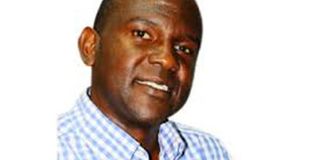Why Uganda’s Opposition is in the battle of the tallest pygmy

Nicholas Sengoba
What you need to know:
- Museveni is ageing. Now more than ever that Museveni is still in power but ageing, there are more people looking at a post-Museveni era, which may come gradually or even abruptly.
- In both cases, if Museveni is easing out and wants to go peacefully, he may have to either overtly or covertly engage in negotiations to settle the transfer of power to another generation to ensure certainty of the country and his future.
Those opposed to the NRM government are now more than ever talking about change ‘to rescue the country from what they call Museveni’s misrule.’ The truth of the matter is that come 2021, if President Yoweri Museveni stands - and there is no indication that he will not- he will be announced winner as most of the conditions in place favour him.
The money, the military, the election management manpower and the State machinery which is fused with the ruling party, are all firmly in his control. Some will tell you that this applies even to the Judiciary. So those talking about change are looking at something else and not necessarily the presidency come 2021. Their eyes are set on Parliament in the short-run to keep them on a political journey to the promised land.
A political party in Uganda is recognised and respected as active and influential going by the number of MPs that it has. Opposition FDC with about 36 MPs leads the Opposition in Parliament and forms the shadow cabinet where it includes other Opposition and Independent MPs. FDC appoints the Leader of the Opposition (LoP) in Parliament, who stands almost at the level of a Cabinet minister and the Opposition chief whip.
They appoint the leaders and members to various committees of Parliament and the Parliamentary Commission. These positions come with influence and additional financial perks. MPs fund their political parties by contributing a percentage of their earnings periodically. What this means is that the bigger the number of MPs a political party has in Parliament, the higher its chances of strengthening its position on the Ugandan political scene. It can use this strength as leverage in negotiating with the ruling party.
A strong position at home is useful abroad in that if a party is perceived as viable locally, it may be considered for funding by influential parties and NGOs abroad. So the game plan is to outwit the other political parties in getting in as many MPs as possible in order to lead the opposition in Parliament.
Something interesting has come up which tells us that there is more than meets the eye in this endeavour.
Those identifying with the Democratic Party (DP) have warmed up to the charisma and moment of Kyadondo East MP Robert Sentamu Kyagulanyi, aka Bobi Wine. They think that his youthful influence may help those who stand on their ticket to get into Parliament if he campaigns for them. Bobi Wine may not necessarily stand against Museveni, opting instead for the MP seat where he is assured of victory.
It is worth noting that this group though not showing interest in vying for presidency, directs a lot of its time covertly disparaging the de facto leader of Uganda’s Opposition Kizza Besigye - a man who has stood against Museveni four times and lost - as ‘a spent force.’
Those who support Besigye accuse his detractors of being sympathetic to the ruling NRM and having a sinister motive. They accuse them of attempting to exclude Besigye to make it easy for the ruling party to lord it over Ugandans in exchange for favours. In other words, they are opportunists with selfish motives.
In the middle of all this comes the proposed Constitutional Amendments to allow Parliament to vote for the LoP and decide on who heads committees of Parliament plus who sits on the Parliamentary Commission. Also the one that changes the system of government from a presidential system to a parliamentary system. NRM, being the majority, will compose Parliament in a way that suits them and makes things easy for them to perpetuate themselves in power.
What all this tells us is that many political players seem to have a feeling that in the long-run, Uganda is headed for a period of uncertainty where many important decisions will be made by consensus.
Now more than ever that Museveni is still in power but ageing, there are more people looking at a post-Museveni era, which may come gradually or even abruptly. In both cases, if Museveni is easing out and wants to go peacefully, he may have to either overtly or covertly engage in negotiations to settle the transfer of power to another generation to ensure certainty of the country and his future.
Now the people who view things this way are increasing their visibility and not only forming political organisations where they are prominent, but also fighting to diffuse the relevance of politicians like Besigye, who has overshadowed especially Opposition politicians for more than two decades. The Besigyes are looked at as a stumbling block because of their recalcitrance and obduracy, which does not allow them to consider reaching out and negotiating.
So come 2021, the Opposition will still be relatively small in terms of numbers compared to the ruling NRM. But in the run-up to the election, they will stage a fight akin to that of dwarfs trying to ascertain which of them is taller.
It is the tallest of the dwarfs, which will lead the rest to negotiate with the giants should that time come.
Mr Sengoba is a commentator on political and social issues. [email protected]
Twitter:@nsengoba




